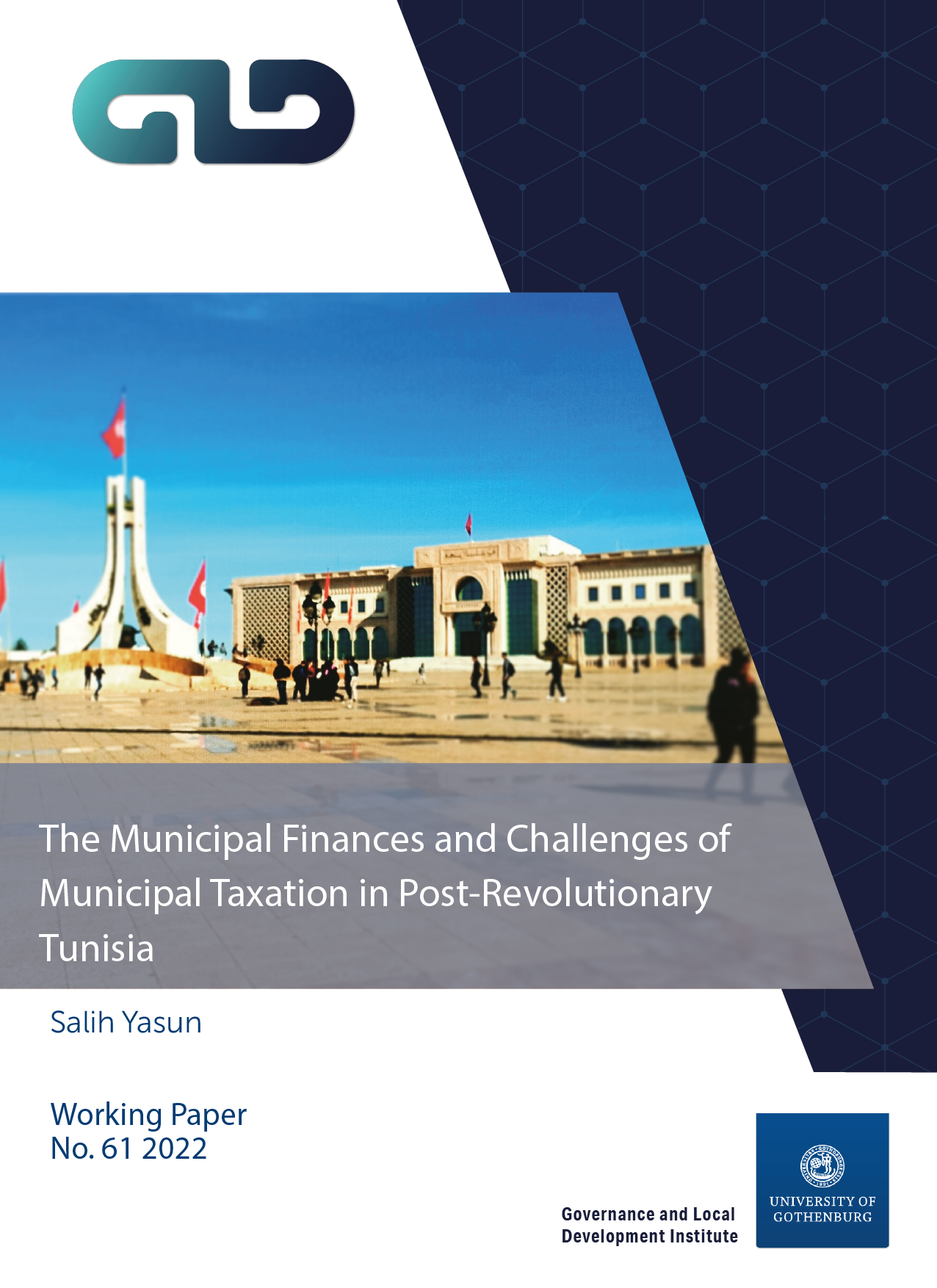No.61 The Municipal Finances and Challenges of Municipal Taxation in Post-Revolutionary Tunisia
Salih Yasun
Abstract
What factors explain the deficiencies in local taxation income in developing countries undertaking decentralization reforms? In this paper, Salih Yasun focuses on the municipal finances in post-revolutionary Tunisia to answer this question. He analyzes the official data published by the Ministry of Local Affairs and Environment for each municipality and compares it with data on other municipal properties. Through a mixed-method approach, Yasun examines the challenges the recently formed municipalities faced in collecting municipal tax income during the 2019 fiscal year. He identifies that municipalities formed after the revolution (N=86) have substantively lower per capita taxation income than municipalities that existed before the revolution (N=264). To explain this phenomenon, Yasun conducted semi-structured in-depth interviews between March and June 2022 with 10 mayors, council members, and bureaucrats. The interviews outline challenges in identification through data (ihsa’) and the absence of citizen collaboration – especially among municipalities that incorporated rural councils – as factors that led to the deficiencies in tax resources. The data collected under former municipal boundaries became unusable within the novel settings. As a result, new municipalities lacked information about businesses and services provided to households, severely limiting their tax income; rural councils previously did not collect taxes. After their incorporation into municipalities, citizens within such areas were either unaware of their current tax obligations or unwilling to pay them. His findings highlight the historical legacies of administrative capacity and citizen compliance on limiting local taxation capacity in developing countries.
Keywords: local governance, taxation, Tunisia, state capacity, municipalities
